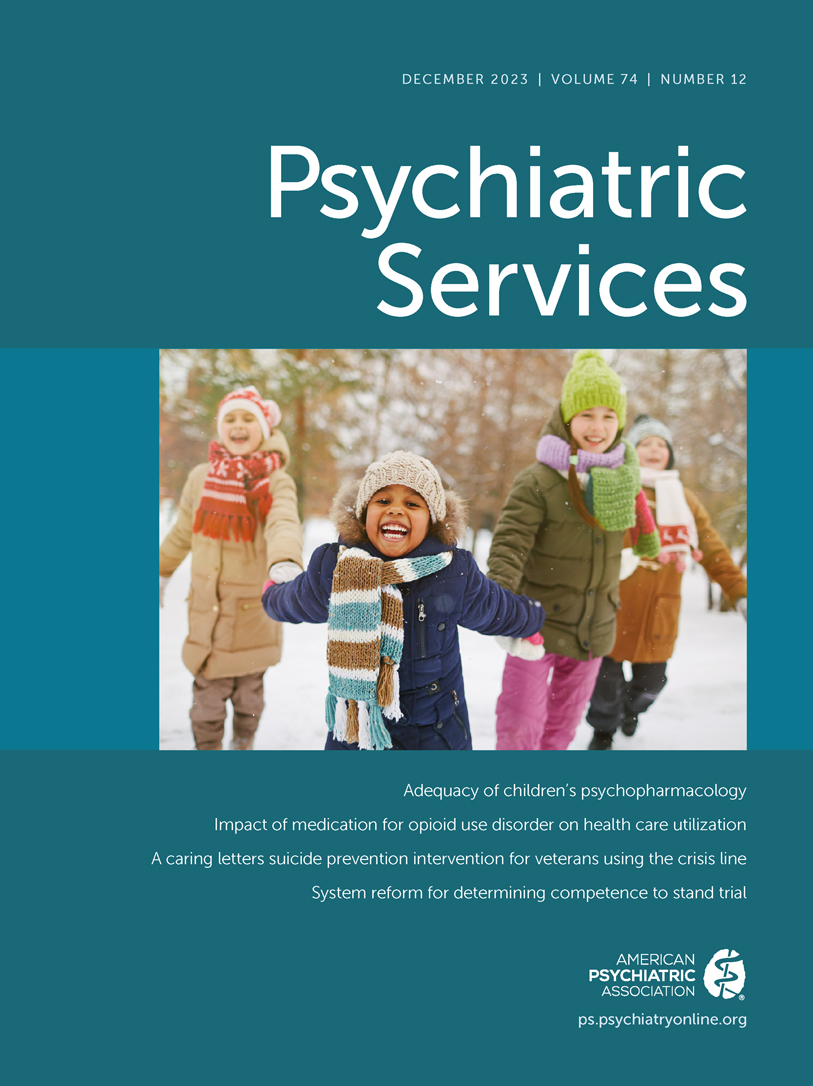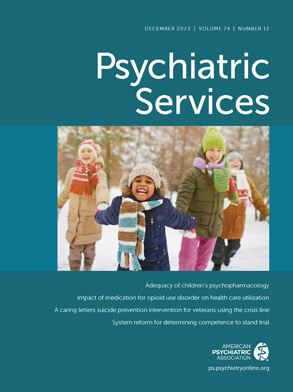Mental health peer support invites people with mental illness to draw on their lived experience while providing psychological support and education to fellow individuals with the same conditions. Despite the growing use and increasing professionalization of peer support, limited work has considered the ethics of this modality. What work exists tends to focus on how peer support providers (“peers” hereafter) might violate participants’ boundaries rather than the reverse (
1–
3). Specifically, although bioethicists have examined the boundaries that clinicians have with patients in mental health care (
1–
7), they have not considered how such boundaries differ in peer support, in which a reciprocal relationship exists between people who provide and receive care (
8). One key concern in the study of boundaries is dual relationships, that is, situations in which peers and patients are familiar with one another in capacities outside of the therapeutic relationship. Although dual relationships in clinical practice can lead to boundary violations, these relationships are more nuanced in peer support, which is not classically premised on hierarchical power dynamics.
As both researchers and peers with serious mental illness, we the authors have frequently confronted the complexities of managing dual relationships in peer support. In this column, we draw on interviews from an ongoing qualitative study on boundary ethics in peer support programs to investigate how peers navigate dual relationships. We sought to highlight opportunities for clarifying roles in peer support and to note what effective boundaries may look like in this unique modality of care. The first author also considers her own dual relationships with peers, who are both research participants and people with whom she collaborates at regional mental health centers.
Peer-Client Relationships
As detailed elsewhere (
2,
9), relationships between peers and the people they serve are dynamic and complex, requiring consideration by bioethicists, clinicians, and peers themselves. Addressing this gap in the literature, we are currently conducting a qualitative, anthropologically informed study on boundary ethics in mental health peer support at mental health agencies across Ohio. We have thus far conducted 39 interviews with 21 peers and agency staff (some of whom identify as peers) on boundary setting. Peers enrolled in the study have indicated that the relationships they have with people who attend support groups and the educational programs they lead are largely respectful and positive. Nevertheless, blurred roles between peers and the people they serve can lead to ethical dilemmas.
Although individual peers have different needs and expectations around boundaries, they often share common approaches to setting boundaries, such as not following the people they serve on social media, limiting or refusing physical contact (e.g., hugs in support programs), and not exchanging material goods with the people served. Despite the innate knowledge that peers seem to have about dual relationships and boundary setting, we were surprised to find that many state-sponsored peer support or specialist certification programs did not specifically mention ethics or dual relationships on their websites; therefore, it is not clear whether peers across the United States (and potentially elsewhere) are receiving consistent and thorough training on ethics. This inconsistency makes discussions of these topics especially pressing and timely.
Challenges of Dual Relationships
Dual relationships in peer support, as in clinical practice, can lead to serious ethical dilemmas that often harm peers themselves. In some cases, peers who share their experiences with mental health struggles as part of their work open themselves up to program participants who may misinterpret the relationship as intimate and personal, rather than therapeutic, and may violate peers’ boundaries. One woman who volunteers as a peer outside of Cleveland sought to help the people she served outside of the support group. “I used to give out my phone number [saying], ‘If you’re having trouble between this week and next week, here, give me a call.’ [Then] I have had two stalkers.” She continued, “You have to have some sort of boundaries because you don’t know what’s going on in their mind.” The same peer also reported that she shared her phone number and took great care to foster a meaningful relationship with someone whom she was helping to train as a peer, which inadvertently backfired when she again was stalked.
[He] sat in the park across the street from my house calling me on the phone telling me that he knew all the cars that I had in the driveway. . . . I put up a huge boundary at that moment. I did take him to court [to get a restraining order], because I was not going to have somebody stalking me.
The peer felt she learned a valuable lesson; going forward, she directed program participants to call the agency office for help rather than her personal cell phone.
Other peers reported that the people they served asked them out on dates. One person explained:
I had a guy hit on me [who] was very inappropriate in their language. Now, we’re friends. We see each other at group and we’re like, “Hey, how’s it going?” But at that one point, it was just, like, “No, you don’t talk to me like that. I’m a peer leader.”
In such situations, peers clearly benefited from a strong sense of personal boundaries and knowledge of how to deescalate violations by participants. Unlike clinicians, who have authority and may violate boundaries with patients who are comparatively vulnerable, peers sometimes experience boundary violations by the people they serve; these encroachments occur because of fewer hierarchical power dynamics and less clarity around mutual aid relationships. That said, peers sometimes do violate the boundaries of the people they serve, such as in the case of a peer whose psychotic episodes led him to excessively text participants of his support programs outside the program setting. In this case, the people served alerted agency staff to the peer’s inappropriate actions, and the peer was then instructed not to lead programs until he had recovered.
Benefits of Dual Relationships
Dual relationships between peers and the people they served were not always harmful, with many being benign and ethically sound. One peer began texting a program participant outside of the support group who was struggling with serious mental illness and ongoing familial abuse. The peer and the participant, both men, bonded over the challenges of being emotionally vulnerable given stigma against men discussing mental health. They formed a deep friendship that ultimately led to the participant attending additional support groups and engaging in new forms of self-care. Although debate occurred among peers about how far the friendship should progress, especially after the peer attended a social gathering with the participant, the peers and the agency staff agreed that each peer should have the freedom to decide on setting boundaries they found productive and protective of their own well-being.
A Latina peer at another agency explained that she would have some contact outside of programs with participants, but she placed limits on these interactions to avoid crossing boundaries. She explained that she would occasionally join people in her peer support program for coffee, but she added, “[People served] need to really consider the boundary of whether or not I’ll do this once or twice if you’re having a crisis or every now and then, but I’m not doing this every week.” One peer also observed that “[Someone served by the agency] and I have been very good friends outside of [the agency] for a very long time, but I would not call her in the evening unless it was very necessary.” Thus, the peer and the person served shared a meaningful social relationship that benefited from some boundary setting, yet it did not require ceasing all outside communication. In these examples, peers found ways to manage boundaries in positive ways that avoided violations and supported others’ emotional needs.
Dual Relationships in Peer Support Research
As researchers with lived experience, we have also reflected at length on the dual relationships we have with research participants, some of whom the first author knew well before the start of the project in the local peer support community. The second author completes interviews with these individuals, ensuring they do not feel compelled to participate or to answer questions in ways they anticipate the first author would want; this research approach is a manifestation of boundary ethics. Having shared our most difficult mental health experiences with each other, either when leading programs or completing training sessions together, we the authors have enhanced rapport with participants; we have embodied some of the same symptoms and confronted challenges when navigating the health care system.
That said, the first author also uses autoethnographic journaling to reflect on how her privilege as a White, upwardly mobile person differentiates her experiences from those of participants who face considerable structural violence. Peers were given the option to be recorded or not during interviews to empower them to set boundaries with the research team about how their narratives are gathered. Thus, the dual nature of relationships the first author has with some of the peers in the study, although requiring certain ethical safeguards and self-reflection, has deepened both the project’s analysis and the trust participants have in the research process.
Conclusions
Dual relationships are an important consideration in the ethical delivery of peer services. Bioethicists have a stake in these conversations, but these considerations are equally pressing for health care professionals in psychiatric services who interface with, oversee, or train peers. On the basis of our qualitative findings, we recommend that peers and clinicians alike reflect more on both the consequences and benefits of setting or not setting certain boundaries within the context of peer practice. Although we should be concerned about the potential for peer program participants to violate boundaries with their peers, and vice versa, we should also listen to peers’ perspectives on which boundaries work and do not work given their individual emotional needs and expectations of their role. Some degree of dual relationship may even be inevitable in peer practice, which is based on mutual relationships between people who exchange stories of mental illness and recovery. Furthermore, lived experience researchers should attend to the complexities of dual relationships when doing research with fellow peers with whom they interface beyond the research. As we have highlighted here, empirical and normative work on ethics in peer support is critical as the field of practice continues to grow and evolve.

